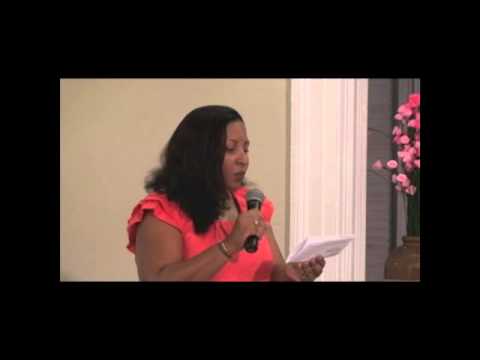By Derry Etkins
At this point on Guyana’s journey, when suicide seems to be the new way of life, I am reminded of Dr Vibert Cambridge’s lecture series of two or three years ago, ‘Music for Social Change’. Unfortunately, I was not present for any of these talks, and therefore have no knowledge of the details he shared, but I do agree, that music can have a profoundly positive impact on our society.
For many people, the word music conjures up images of people making music; and so it should. Beyond that point however, guidance and discourse become necessary. There are studies which show, that “music enhances brain development.” Others show, that studying music enhances performance in other subject areas, particularly mathematics. I firmly believe, that there are other, less visible benefits to be derived from studying (or having studied), and being (or having been) actively involved in making music.
Let me state at this point, that the goal of studying music is not necessarily to become a practicing musician, but rather, to provide a person with invaluable life skills!
There is an unmistakable sense of self-worth that comes from mastering an instrument, or singing in an organised situation, regardless of the level of activity. There is also a sense of community, that comes from singing and playing together. That sense of community reminds a person, on an unconscious level, that they are not alone in the world. On a conscious level, the music community is a readymade support system. After all, these are people who have something spiritual in common, and will be willing to listen and share. More importantly, the sense of empowerment that comes from musical literacy touches a person very deeply, much like that of literacy in language.
By no means am I suggesting, that music alone will prevent thoughts of, or attempts at suicide, but the benefits of involvement in music making will help persons win internal battles.
Music therapy is a relatively new and open field in the Caribbean, and definitely in Guyana, and could be a viable and relevant area of study for music students not interested in a career as a practicing musician. These professionals, however, will only be relevant in cases of failed suicide attempts. Music educators, on the other hand, would be adding to the proactive, preventative approach.
Video
Our leaders have promised to resuscitate music education in Guyana. This suicide period should strengthen their resolve to do so.
There are other societal ills that can be addressed through musical involvement. Crime is one of them!
One of the intangibles that develop through musical involvement is, integrity. As simple as it may seem, the act of holding a note for its full value requires that we respect and honour that little bit of ink on the page before us. Commission of any crime, regardless of the colour of the collar, stems from a lack of integrity. Commission of a crime demonstrates a lack of respect for the victim, on an immediate level, but it also shows a lack of respect for the wider society.
Another intangible is the concept of ‘team’. As a member of an ensemble, whether band, orchestra or choir, I am required to pull my weight and put all my energies into my contribution, as long as I do not overshadow the other members. I am not a soloist, in that situation. This team spirit, which also manifests itself as consideration for others, transfers into daily life. A considerate person will not deliberately do anything to make another uncomfortable. Basically, a crime is an act deliberately committed to cause discomfort.
I, too, see the year 2016 as a golden opportunity for national unity. A well designed and executed music education policy, which includes all the various musical sources and styles in Guyana, will promote understanding among the peoples of Guyana. This understanding will help to reduce fear, and promote trust among Guyanese. Once these are achieved, the sky is the limit for our Dear Land of Guyana. Let us make music! Let us make peace!





